1 March 2022
AI-CD Secretariat
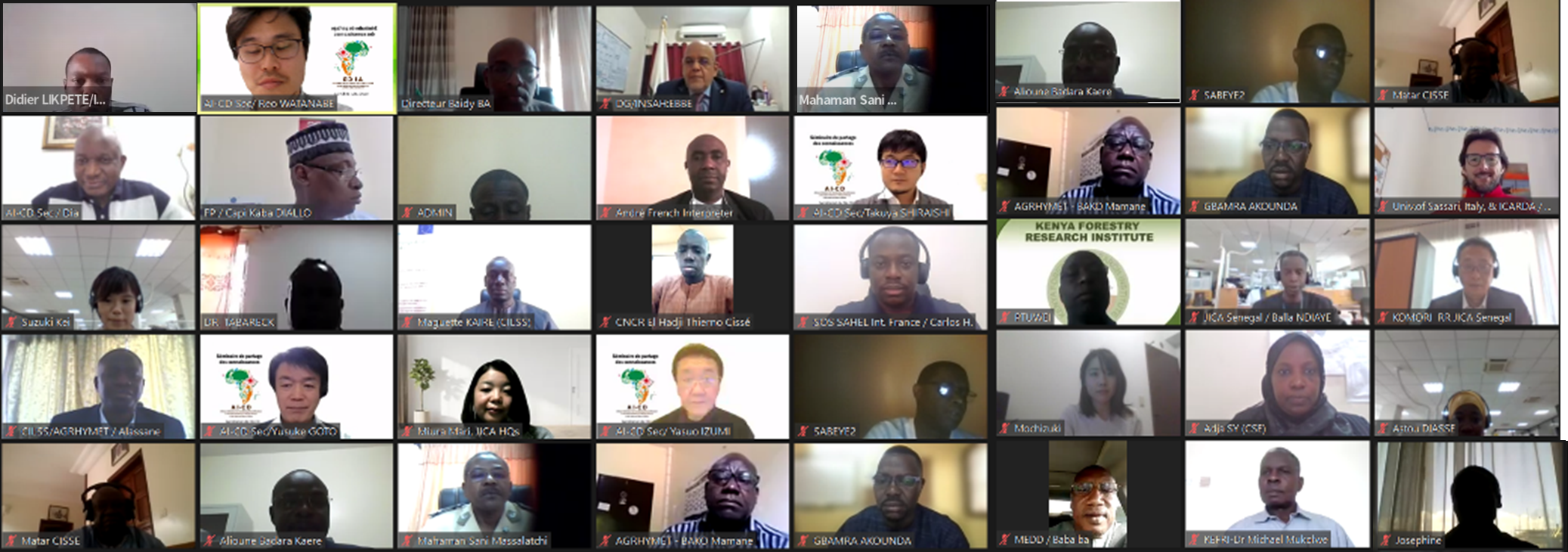
OVERVIEW
Following the final AI-CD conference for Horn of Africa titled “Sharing Experiences on Impacts from Networking, Knowledge Sharing and Access to Finance” in August 2021, AI-CD’s knowledge-sharing seminar for the Sahel region was held virtually on 1 March 2022, co-organized by Senegal as the Regional Hub, CILSS and JICA. The said seminar welcomed around 45 participants composed of the AI-CD Focal Points (FPs) of Burkina Faso, Cameroon, Chad, Djibouti, Mali, Nigeria and Senegal; international and regional partners including International Center for Agricultural Research in the Dry Areas (ICARDA), Ecological Monitoring Centre (CSE), SOS Sahel, National Council for Concertation and Rural Cooperation (CNCR), Regional Hub of the Horn of Africa (Kenya FP); representatives from the Ministry of Environment and Sustainable Development (MESD) of Senegal; Permanent Interstate Committee for Drought Control in the Sahel (CILSS); Sahel Institute (INSAH); JICA; and the AI-CD Secretariat.
The seminar featured introduction to knowledge and tools to combat desertification, particularly those compiled by CILSS; knowledge sharing of contents related to AI-CD uploaded on website, and discussions between FPs and International Technical and Financial Partners (ITFPs) through which it was reaffirmed that all the different techniques and technologies developed in the fight against desertification should be shared with the local population.
HIGHLIGHTS OF THE SEMINAR
Mr. Baba Ba, the representative of the Sahel Hub and Chair of the opening ceremony, welcomed the participants and cited AI-CD’s role in preventing desertification. He emphasised that knowledge sharing is one of the three main pillars of AI-CD.
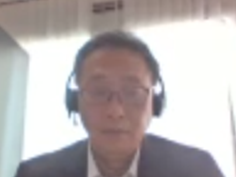
Mr. KOMORI Masakatsu,
Chief Representative of JICA Senegal
Mr. KOMORI Masakatsu, Chief Representative of JICA Senegal, in his opening address, underlined the following important events: Sahel Regional Forum in March 2022, the United Nations Convention to Combat Desertification 15th Session of the Conference of the Parties (UNCCD COP 15) scheduled in May 2022, and the 8th Tokyo International Conference on African Development (TICAD 8) planned in August 2022. He emphasised that the seminar should be grasped as the opportunity to examine useful knowledge-sharing practices to be adopted and promoted by member countries to foster the combat against desertification.
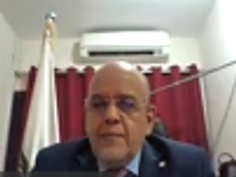
Dr. Mohamed Abdellahi EBBE, General Director of Sahel Institute (CILSS/INSAH)
Dr. Mohamed Abdellahi EBBE, General Director of Sahel Institute (CILSS/INSAH), in his speech, expressed gratitude to MEDD and JICA for providing the opportunity to share the experiences of CILSS with member countries in the current context characterised by variability of climate change as well as degrading vulnerable natural environment. He also gave an overview of the best practices to be presented by INSAH and the other departments of CILSS during the seminar consisted of a wide range of data existing in their Operating System.
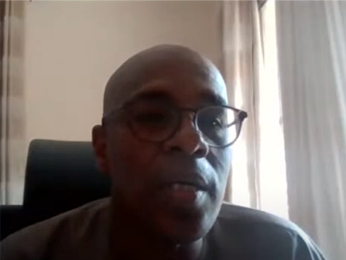
Mr. Baidy Ba, Director of Waters and Forests of MESD and AI-CD Focal Point of Senegal
Mr. Baidy Ba, Director of Waters and Forests of MESD and FP of Senegal, read the speech on behalf of Mr. Abdou Karim SALL, the Minister of the Environment and Sustainable Development of Senegal (MESD). In his speech, he appreciated AI-CD’s initiative and CILSS for sharing the broad experience in terms of techniques and well-proven technologies to combat desertification in the Sahel. Reminding the three pillars of AI-CD, he emphasised that the implementation of AI-CD initiative requires consulting, communication and capacity building for all stakeholders and, in such context, the seminar enabled all interested parties to find opportunities for networking, sharing best practices and enhancing access to finance.
(1) Introduction to knowledge and tools to combat desertification, particularly those compiled by CILSS
At the start of the session, Dr. Sheick Khalil Sangaré, Acting Chief of the Department of Studies and Researches in Agriculture, Environment and Markets of INSAH, highlighted that the presentations were just brief syntheses of a vast amount of knowledge.
Forestry and Agroforestry
Firstly, Dr. Sangaré made an introductory discussion on the method of defence, followed by a presentation on assisted natural regeneration (ANR), and then bank protection.
In the first presentation, he discussed defence as the practice to delimit part of a village territory, either partially or totally, to access of humans or domestic animals (large and small ruminants) for a given period in order to allow the ecosystem to regenerate.
In the second presentation, he explained that ANR is comprised of ways of protecting and maintaining the growth of local species with economic, social and cultural values favored by the populations. Then, he proceeded with the discussion of the objectives of this method, and made an introduction to its implementation through a resourceful slide presentation.
Sustainable land management
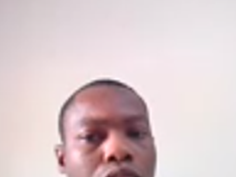
Dr. Dagnon Didier LIKPETE
of SILSS/INSAH
Dr. Dagnon Didier LIKPETE, Capitalization/Platform Expert of CILSS/INSAH, made two presentations: management and control of bush fires, and fight against soil salinisation.
In the first presentation, he underlined that a participative approach related to sensitisation and education of the population in the targeted zones must be prioritised, and this requires a close collaboration of different parties for the management and control of bush fire.
In the second presentation, he detailed the characteristics and the negative impacts of soil salinisation, followed by discussion on chemical, mechanical, and biological implementation methods.
Organisational good practices
Dr. SANGARE made an introduction to the topic on participative management of forest and wildlife resources. He explained that forest management embraces both social and ecological dimensions, and forest, as a national heritage, must be managed in a national and well-balanced way in order to guarantee, in the long run, the satisfaction of population needs while safeguarding the environment.
Then, he gave details of the implementation methods related to forest management sites in terms of environmental, ecological and socioeconomic impacts.
In his second presentation, Dr. SANGARE depicted the case of village areas dedicated to hunting purposes (known as zovic) within the framework of participatory management of wildlife resources.
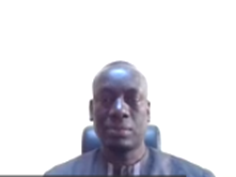
Dr. Maguette KAIRE of
CILSS/AGRHYMET
Following these presentations, Mr. Baidy BA summarised the different resourceful and well-informed discussions carried out during the session.
Subsequently, comments and questions from technical viewpoint were given by several participants and the experts of CILSS/INSAH responded to these questions. Participants to the discussions on topics such as the combination of the mechanical methods to prevent soil salinisation, and the density of trees per hectare for the ANR method, included Dr. Maguette KAIRE, agro-hydro-meteorology expert (CILSS/AGRHYMET); Mr. Serigne SENGNANE, CNCR of Senegal; and SOS Sahel, .
(2) AI-CD member countries’ usage of knowledge and tools in their own context
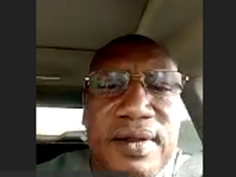
Mr. Baba BA,
Representative of Sahel Hub
In this session chaired by Mr. Baba BA, representative of Sahel Hub, practices on the use of knowledge and tools on policy development and project formulation stage were shared by Mr. Kaba DIALLO and Mr. Paul TUWEI, FPs of Mali and Kenya, respectively.
Mali
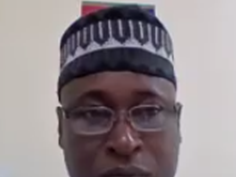
Mr. Kaba DIALLO,
Focal Point of Mali
Following the general introduction of Mali, Mr. DIALLO went on to explain the environmental context characterised by land degradation, and presented the government’s efforts related to the usage of AI-CD knowledge and tools in Mali.
Kenya
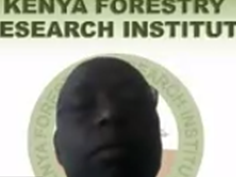
Mr. Paul TUWEI,
Focal Point of Kenya
Mr. TUWEI talked about some of the tools being developed in Kenya, such as website tools for knowledge sharing purposes, including KEFRI’s website where research and development information are stored and retrieved, and CADEP’s web portal which is used to capture and document information and good practices in sustainable natural resource management. He also presented an application called “KEFRIapp” which can help stakeholders planting trees in the right site to promote resilient growing for land restoration and livelihood improvement. He raised some challenges on the language barrier and shared that this what makes the app difficult for the audience to understand and apply.
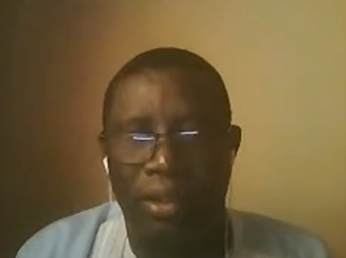
Mr. Seydi Ababacar BEYE,
Agroforestry Expert of RIPOSTE Project
Following the two presentations, comments and questions were given by several participants including Dr. SANGARE, CILSS/INSAH; and Mr. Seydi Ababacar BEYE, agroforestry expert of the RIPOSTE project. One of the common points highlighted in their remarks was the impact evaluation of these tools and strategies developed for knowledge sharing.
(3) Introduction to knowledge sharing of AI-CD contents uploaded on the website
In this session chaired by Dr. SANGARE of CILSS/INSAH, an introduction to knowledge sharing of AI-CD contents uploaded on the website was made by three participants: AI-CD Secretariat, CILSS and ICARDA.
AI-CD Secretariat
Mr. Takuya SHIRAISHI, AI-CD Secretariat, gave an insight about the AI-CD and presented Knowledge-Sharing Tool, AI-CD Collaborators and Partners, AI-CD Information and Policy Note, a short movie as well as highlights of Japanese cooperation.
CILSS/AGRHYMET
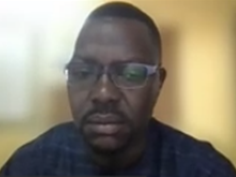
Mr. Gbamra AKOUNDA,
GIS Specialist of CILSS
Firstly, Mr. Gbamra AKOUNDA, GIS Specialist of CILSS, made an introduction to GEO-AOS Tool, which is an integrated portal of CILSS. Secondly, Dr. Papa Alassane MBAYE, Specialist in charge of Communication of the AGRHYMET Regional Centre, proceeded with the presentation regarding the implementation of a Digital Library. This was followed by the presentation of Dr. SANGARE, “Tools for Knowledge Sharing of Best Practices,” including 350 best practices in different domains such as agriculture, climate change, desertification, etc.
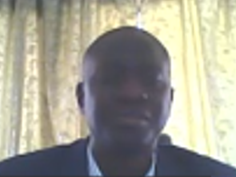
Dr. Papa Alassane MBAYE of
AGRHYMET Regional Centre
ICARDA
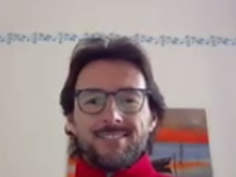
Dr. Claudio Zucca of ICARDA / University of Sassari
Two presentations were prerecorded by ICARDA. The presentation by Dr. Claudio ZUCCA, Researcher at the University of Sassari and representative of ICARDA, was about sharing platforms related to Sustainable Land Management (SLM) and WOCAT Tool, which is a global network for SLM. The prerecorded presentation of Ms. Victoria CLARKE was an introduction to Monitoring, Evaluation and Learning (MEL) Platform, which is one of ICARDA’s main digital data resources, a part of the collaboration with AI-CD.
(4) Discussion on better usage of knowledge-sharing assets of CILSS
In this session chaired by the Head of AI-CD Secretariat Support Team, meaningful discussions were held among the participants, with involvement of many partners including the FP of Djibouti in the region of Horn of Africa.
Specialist from ICARDA
Dr. Claudio ZUCCA expressed his words of compliments to all presenters who did an excellent job in being resourceful in knowledge sharing. Although many of the presentation topics were not new to him, he noticed that these had been adapted and presented in a creative format.
Representative of the FP of Djibouti
Mr. Deka Deka Elmi Hassan, the representative of the FP of Djibouti, said that the presentations were quite useful for his country. His fellow experts had attended a lot of training programmes organised by KEFRI, and while the FP’s former colleagues are now all retired, the country has only new workers who need more trainings. They will highly appreciate the possibility of having more trainings in the future.
SOS-Sahel Representative

Mr. Carlos HAYIBOR of
SOS Sahel
Mr. Carlos HAYIBOR from SOS Sahel had raised the issue at the level of SOS Sahel. The organisation runs a platform called PANGMV, consisting of a hundred of non-state actors working to implement the Great Green Wall Project. They have created a platform based on a knowledge management database to disseminate knowledge sharing. He noticed that there are a lot of knowledge-sharing platforms, and reiterated that they must avoid “reinventing the wheel.” It is rather necessary to think of creating a synergy through a medium by which knowledge sharing operates.
Representative of the Sahel Hub
Mr. Baba BA raised two main issues: (1) finding strategies to disseminate knowledge acquired throughout the meeting to the local population, the main TARGET; and (2) thinking of how technologies developed (such as the Roller Planter and Porous Alpha and their cost-effectiveness) be made available and accessible to the local population.
(5) Synthesis and Way Forward
Representative of Sahel Hub, and the session’s Chairperson
To summarise, Mr. Baba BA underlined that the participants had noted all the lessons learnt from practical experience, with major difficulties mainly related to the lack of financing for the implementation of projects and, most importantly, the challenges related to sustainability of the tools presented by Mali and the Horn of Africa.
AI-CD Secretariat
To present the way forward, Dr. Yusuke GOTO from the AI-CD Secretariat divided the activities to be carried out into two: before and after AI-CD, to be discussed and presented by CILSS/INSAH, AI-CD Secretariat, the member countries, as well as the Sahel Hub.
Global Environment Department, JICA Headquarters
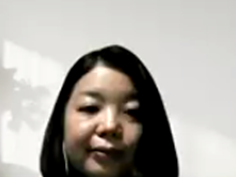
Ms. Mari MIURA of
Global Environment Department, JICA Headquarters
Ms. Mari MIURA, from Global Environment Department of JICA Headquarters, expressed her appreciation for the large attendance of stakeholders. She believed that the seminar was very relevant as precious knowledge tools and information resulting from the groundwork were shared by the CILSS and other organisations. She ended with giving special thanks to the MESD Senegal, CILSS, ICARDA, all Focal Points and stakeholders.
On behalf of the FP of Senegal, Mr. Baba BA expressed a few words to close the seminar. He cited his deep appreciation to the Government of Japan, CILSS for its support, and to all Focal Points and stakeholders.
*Notes: The description of “Dr.” in this article indicates the person who has Ph.D.

